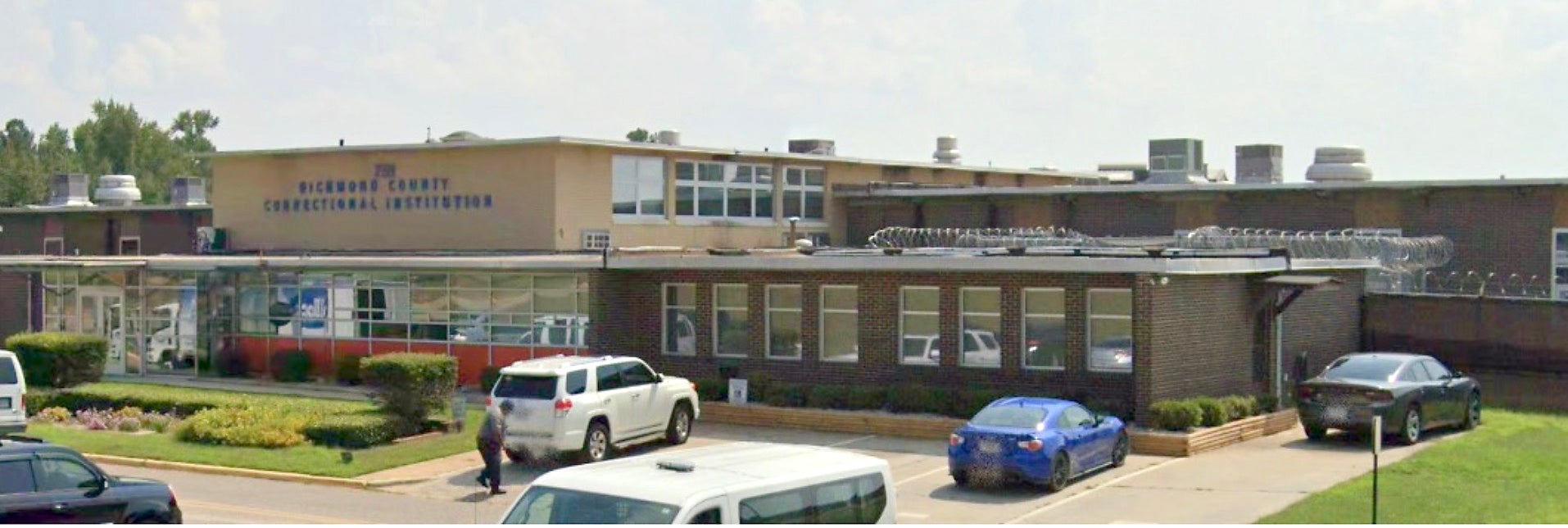Augusta leaders are turning to the state for help replacing the Richmond County Correctional Institution, an aging prison labor facility on Tobacco Road that houses state inmates and supplies work crews to city departments.
At a Thursday meeting with the Richmond County legislative delegation, Warden Evan Joseph said the 65-year-old facility needs major capital improvements such as HVAC, electrical, roofing, plumbing and kitchen work. Voters approved $11 million to rebuild it in SPLOST 8 in 2021, but the price tag is now estimated at twice that.
The prison operates near capacity, with 225 inmates out of a 230-bed limit, he said. About 90 to 110 minimum- and medium-security state prisoners work daily on cemetery, ditch, building and other crews. “The prison is run by the city. We contract with the state to house theirs,” Joseph said.
There are approximately 21 county work camps around the state that locally fund the facilities to house state prisoners for labor purposes. Several including Hall, Gwinnett and Muscogee have received state funding to pay for renovations, Joseph said.
MORE: RV storage facilities proposed in Martinez and Grovetown
Recently, some city officials have deemed RCCI a money-loser. Mayor Pro Tem Wayne Guilfoyle asked Thursday how much the city loses operating RCCI. The prison’s $5.7 million budget is offset by $2 million to $2.5 million in state reimbursements, leaving Augusta to cover about $2.2 million, Interim Finance Director Tim Schroer said.

The loss does not account for any city savings on labor supplied by the work crews. “It’s a shame where our success depends on if we get inmate crews. If something doesn’t happen, what is the alternative – to shut it down, warden?” asked Guilfoyle.
Joseph said he was “optimistic” about getting state construction assistance. But a recent state appropriations bill that included $600 million for corrections projects only funded state-owned facilities, although it allocated funds for other projects in several counties, Rep. Lynn Hefner said.
MORE: Hurricane Helene clean up continues at Clarks Hill one year on
“What is the current value of the services provided by the inmates?” Sen. Max Burns asked. Burns estimated that at 100 working per day, the services could be worth $1.5 million to $2 million.
Schroer said he would obtain the information. Administrator Tameka Allen added she recalled a cost-benefit analysis that put the labor cost at $70 to $80 per hour.
Augusta’s paid lobbyist, Marci Rubensohn, helped county facilities around the state increase the inmate per diem to $30. She urged officials to develop “a new ask,” possibly targeting Department of Corrections workforce development grants, though she said most are programmatic rather than capital.
Other delegation members agreed any request must show how the project benefits the state as well as Augusta.
“When you talk about housing persons who are incarcerated, it really is a state issue,” Sen. Harold Jones said. “It’s a great deal for the state and a great deal for the local economy if they can put those folks to work.”
Rep. Brian Prince said the commission should present a unified request. “We definitely need to have the commission get together before the state delegation can actually go out and formally request funds in the upcoming budget,” he said.









